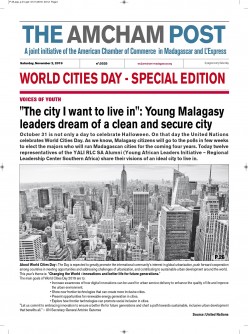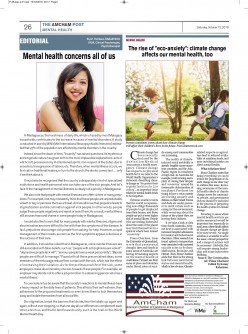In Madagascar, the harshness of daily life, which is faced by most Malagasy households contributes to the increase in cases of mental disorders. A study conducted in 2001 by MINI (Mini International Neuropsychiatric Interview) estimated that 47% of the population are affected by mental disorders in the country.
Indeed, since the dawn of time, "insanity" has raised questions. Its mysterious and enigmatic nature has given birth to the most implausible explanations: acts of witchcraft, possessions by ill-intentioned spirits, non-respect of the duties due to ancestors, transgression of taboos, etc. Therefore, when mental illness occurs, we first call on traditional healers, or turn to the church; the doctor comes last … only if we think about it.
It must also be recognized that the country is desperately short of specialized institutions and health personnel who can take care of the sick people. And let's face it: the management of mental illnesses is clearly not a priority in Madagascar.
We also note that people with mental illnesses are often victims of many prejudices. For example, one may mistakenly think that these people are unpredictable, violent or lazy or perceive them as a threat. And we all know that prejudice leads to stigmatization and discrimination against sick people. In other words, people judge these people negatively and reject or avoid them. As a result, mental illness still arouses fears and shame in some people today in Madagascar.
I would also like to warn that for many people with mental illnesses, stigma and discrimination are more difficult to live with than the symptoms of the disease. In fact, prejudices discourage sick people from asking for help. However, a rapid management of their needs, as soon as the first symptoms appear, is decisive in the success of their care.
In addition, it should be noted that in Madagascar, some mental illnesses are still associated with false beliefs, such as: "people with schizophrenia are violent"; "depressive people lack will"; "anxious people have a weak personality"; "Bipolar people are difficult to manage." Faced with all these preconceived ideas, some members of the entourage reduce their contact with the sick, which has the effect of increasing their isolation. As for the professional life of the sick, some employers make discriminatory choices towards these people. For example, an employer may decide not to offer a job promotion to a deserving person who has a mental illness.
To conclude, let us be aware that the society's reactions to mental illness have a heavy impact on the daily lives of patients. This affects their self-esteem, their adherence to the proposed treatments or even drives them to lock themselves away and isolate themselves from all social life.
De-stigmatize, break the barriers that divide, tear the labels up, again and again, without ever stopping, so that one day all our differences complement each other, enrich us, and that to tend towards unity, such is my call on this World Mental Health Day.
images/AMCHAM/AMCHAMPOST2019/AmCham_Post_12_october.pdf













